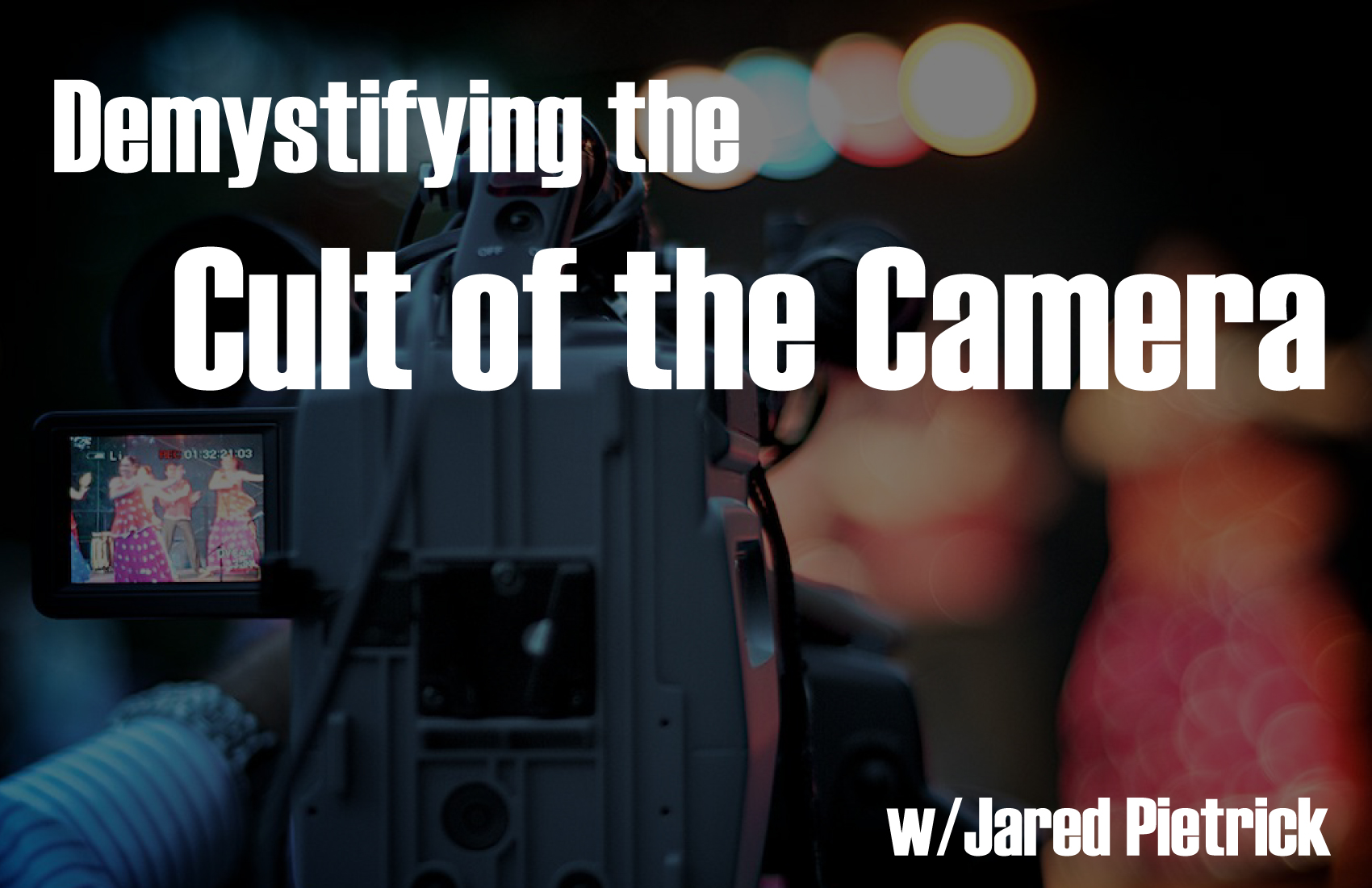The cult of the camera places a disproportionate value on those who self-promote to those who don’t.
It should come as no surprise that videos and flow arts have a symbiotic relationship. The contemporary flow arts culture can trace its roots directly to the ability to share videos on you tube and forums. Without this technological advance, the teaching/learning of these esoteric skills would still be conducted through one on one interactions, face to face with the person who is teaching you the skill. Ideas would only spread as far and fast as they were able to be physically carried by the people who knew them. The skills would only be transmitted to those who were present to learn them directly. Needless to say, being able to spread your ideas globally to anyone eager to learn them has been a huge boon to the world of flow arts. However, hand in hand with this advancement of our ability to communicate with each other comes a strange new relationship within the community creating an imbalanced perceived value of individuals who share videos to those who don’t.
There was a noticeably dramatic shift in the nature of my personal interactions with other flow artists before becoming a content creator and after, specifically at flow fests. Before putting videos out into the community, I was regarded as an average ticket holding member of the spinning community by both the group of instructors, and the group of other ticket holding spinners. After producing videos and gradually building an online presence, I was treated differently by the community. The instructor level spinners generally treated me more as a peer, and occasionally other spinners in the larger community would recognize me.
The recognition from the instructor community was understandable, since I was producing videos, I actively made my existence know so that I was not just some stranger that they were meeting for the first time with no context. Becoming searchable online gave me a bit of street cred and made me reference-able. If someone was looking at a schedule and saw my name, they could look up my videos to get an idea of what i would be teaching. In fact, I was doing what other instructors were doing, and was welcomed as a peer for participating in the conversation. I became a fellow flow geek that had put the effort into learning something and then additional effort in sharing it with others.
A much more interesting and strange reaction to my videos was being recognized by non-content creators. People who followed my videos online. People tended to recognize me from my videos and then behave awkwardly around me (a-la wayne and garth – “we are not worthy” scene from waynes world). Other people might enjoy this type of attention, for me, it’s a huge bummer. I’m already a socially awkward individual and am not always the best at steering these interactions back toward easy breezy conversations. Interactions that start with “i saw your video” are usually doomed to a predictable fate of awkward silence, and a whole lot of blushing/nervous mannerisms from both parties, until it all becomes intolerable for everyone, and we all run away. This is such a bizarre and unfortunate consequence of being recognizable. Strangers will greet you with excitement and then behave timidly around you.
Enter “Cult of the Camera.” Where the perceived value of those who are active in creating content begins to outshine the skills of others who are equally skilled yet not as active in self promotion. Where a false perception of celebrity status can occur inside of a community that depends on its members being equal and open to each other in order for free transmission of ideas. Granted, having skills in flow arts enables ones ability to perform. However, these skills are seemingly trumped by another individuals ability to utilize a camera and edit an engaging video (or at least get someone to do that part for them). Video media serves as valuable promotional material that every performer should have and creates a sense of value for that performer.
In a perfect world, the most committed spinners with the most refined skills would be the ones to draw the most attention, or create the best videos, and thus generate the most value for themselves. This is not always the case in our contemporary flow community.We all know at least one (if not several) performers who excel in self promotion while struggling to learn even remedial skills with their props. This is actually so common that there isn’t a need to name any examples because EVERYONE knows at least a couple of these folks/troupes, either in their local community, or the larger flow community network. A harsh fact to accept that being skilled at marketing yourself will always be more effective than simply being awesome at the thing you are marketing. In other words, no matter how awesome you are at something, if no one knows about it, it doesn’t matter. If you master the art of running up falling snowflakes as though they were floating stairs, if nobody was around to share your story, nobody would ever hear about it or care.
Please don’t get me wrong, the act of self promotion is an absolutely necessary skill for all performers who hope to be able to make a name for themselves at all. Unfortunately it also follows that if you are really skilled at selling stuff, you can practically sell anything. so it is a common occurrence in the flow community (or really any artistic community) to find highly successful performers/artists who hold status because they have empowered themselves with technology, and self promotion and kind of skipped over the part where they invest their time and energy into practicing the skill they are so successfully marketing. That is not to say that there aren’t plenty of highly technologically savvy, and skillful tech-spinners who market themselves effectively (and bravo for being a boss). BUT those who have gained some minor form of celebrity status inside the flow community simply by over-saturation of high end video content of themselves doing mediocre performance do help serve as excellent examples of the effectiveness of the “cult of the camera.”
this is something i have been dwelling on a lot over the years i have been spinning. when i started out i did not have access to a video camera, then i got a cheap one and learned some basic editing skills and put out some blurry videos of some moves i had thought up and hadn’t seen other people do. soon after that was able to borrow a friends better quality camera, and level up my videos so the viewer could see the difference between finger spinning and solid grips on props, etc. but all along i have known that having the ability to create high quality video would open huge doors. recently this became a huge motivation for the purchasing of my own video equipment, and teaching myself how to get the most out of using it (which i find usually means pointing it at someone else, and manually controlling it to get really nice shots). I have been producing free media for anyone in my local area that wants it. this of course is not limited to flow arts, but that naturally has been the lions share of what i produce since i am so integrated into that community. I know for my own interests, (I have always secretly been a video nerd, and film school wannabe) purchasing my camera was the most empowering thing i could have done for myself, and i intend to make that spill over into my immediate community by helping create visually engaging videos for people that want them, but lack either the access to the technology, or the skill set to create their own media.
Only time will tell what the outcomes of the “cult of the camera” will be. I hope it is not my folly to find that people take this empowerment to inflate their own egos, and claim status over those who have not benefited from the same types of exposure. Rather, I hope people find that this kind of exposure has professional benefit for any performer, and should be a necessary part of all of our “tool kits.” Just like head shots don’t make an actor a star, it just means they are trying to get work. When folks stop seeing video as some kind of magically special thing, and start seeing it as a handy communication tool for all professional performers to have skills in, hopefully the camera cult will lose its mystique.
On a fundamental level, when all notions of status and celebrity get stripped away, we are all a bunch of awkward introverts who spend more time alone in a room dancing with inanimate objects than we do interacting with other people. Some of us are active in sharing our ideas, others are active in learning the ideas that others share. When we all get together, we can let our guard down long enough to just let go and have fun. This is the elemental spark that makes the flow community so vibrant and unique. We all gather together to share the thing that enables us to be introverts in our regular lives. Being able to share that, in itself, is a gloriously unifying experience. To then sub-divide that unified culture into varying strata of importance based on who is most active in uploading videos of themselves is kind of a tragic divergence from that very real and beautiful experience. I really hope that as the flow culture develops over time the community finds a way to make the tools to communicate as open source as the art form we all share.
This article was originally a comment on Noel’s article on the pros and cons of video sharing. Jared expanded his views to create the op-ed.

